When white parents have ‘the talk’ with their Black children
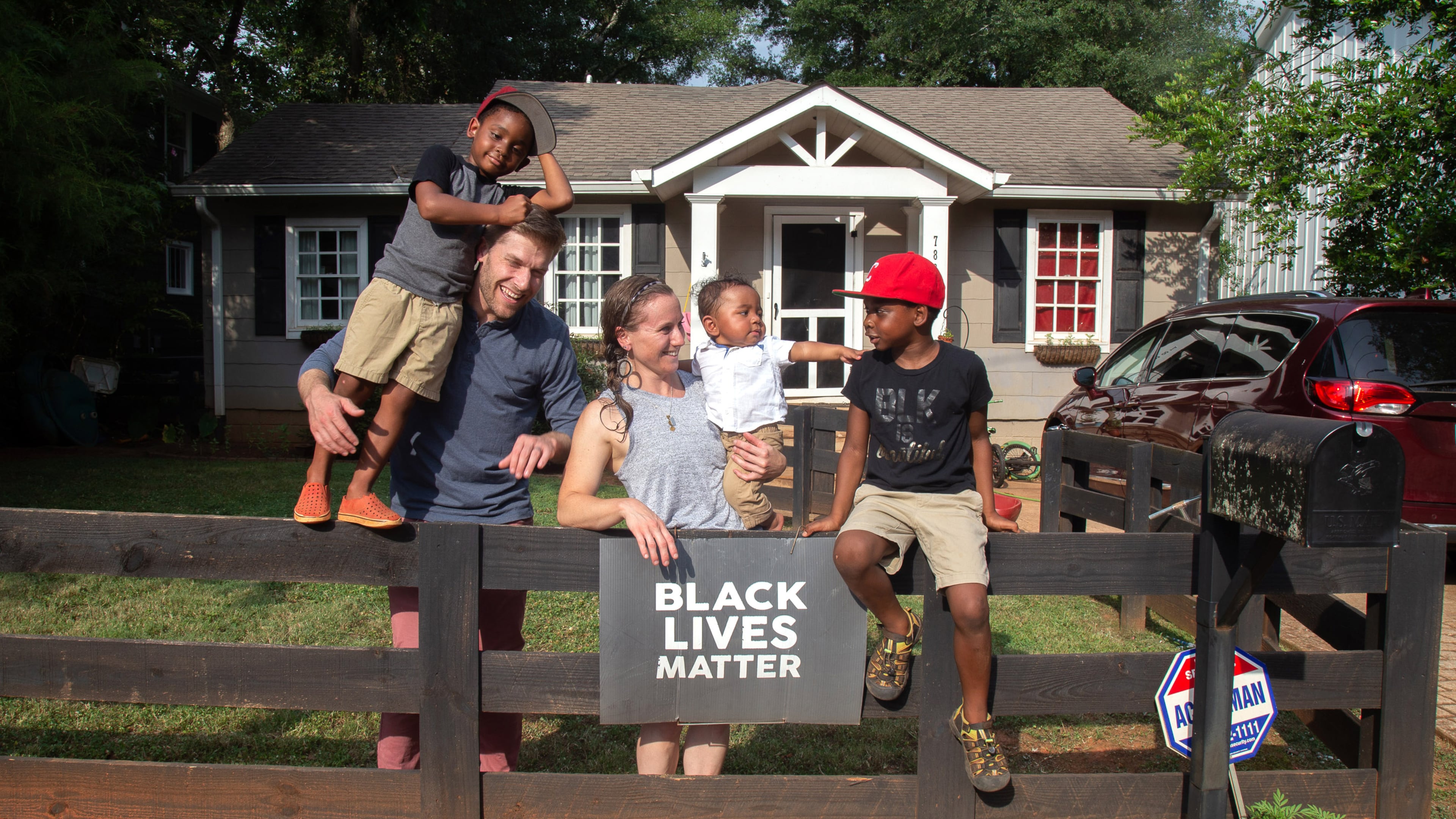
Clark Eyster is big for a 5-year-old. He is already over 4 feet tall and 55 pounds of muscle. His 4-year-old brother, Mac, is not far behind.
So, when their parents Zach and Brit Eyster take them to the park, the boys run and jump and — as brothers do — roughhouse.
“I already see it. I see the way parents of white children tense up around them when they play,” Zach said.
It is subtle, he says. But a parent notices the extra second their children are not afforded the same considerations that other children naturally and unconsciously enjoy.
Zach and Brit are white. Their adopted sons are Black.
“I have a unique perspective,” Zach said. “The first 30 years of my life, I lived and saw things as a white man. The last 5 years I have lived through their eyes and it is abject terror. It is scary to me because it never stops.”
Dating back centuries, it has always been dangerous for Black boys in white spaces, especially when it comes to dealing with law enforcement. This summer, news of the COVID-19 pandemic competed only with the spate of killings of unarmed Black men and women, often by police. Last Sunday, a Clayton County deputy sheriff was fired after beating a black man after a traffic stop that bystanders recorded.
In Chicago in 1955, when Mamie Till told her son Emmett how to act when he arrived in Mississippi for a summer visit, she was giving him “the talk.”
The talk has become a necessary rite of passage for many Black children, especially boys and young men. It is not the birds and the bees, but a stark conversation about how to behave in the presence of police: no sudden movements, show your hands, never raise your voice, don’t question why you’re being stopped, comply with all verbal commands.
Anything to make it home safe and lessen the chances of becoming the next Emmett Till, Trayvon Martin, Ahmaud Arbery, Breonna Taylor, George Floyd or Rayshard Brooks.
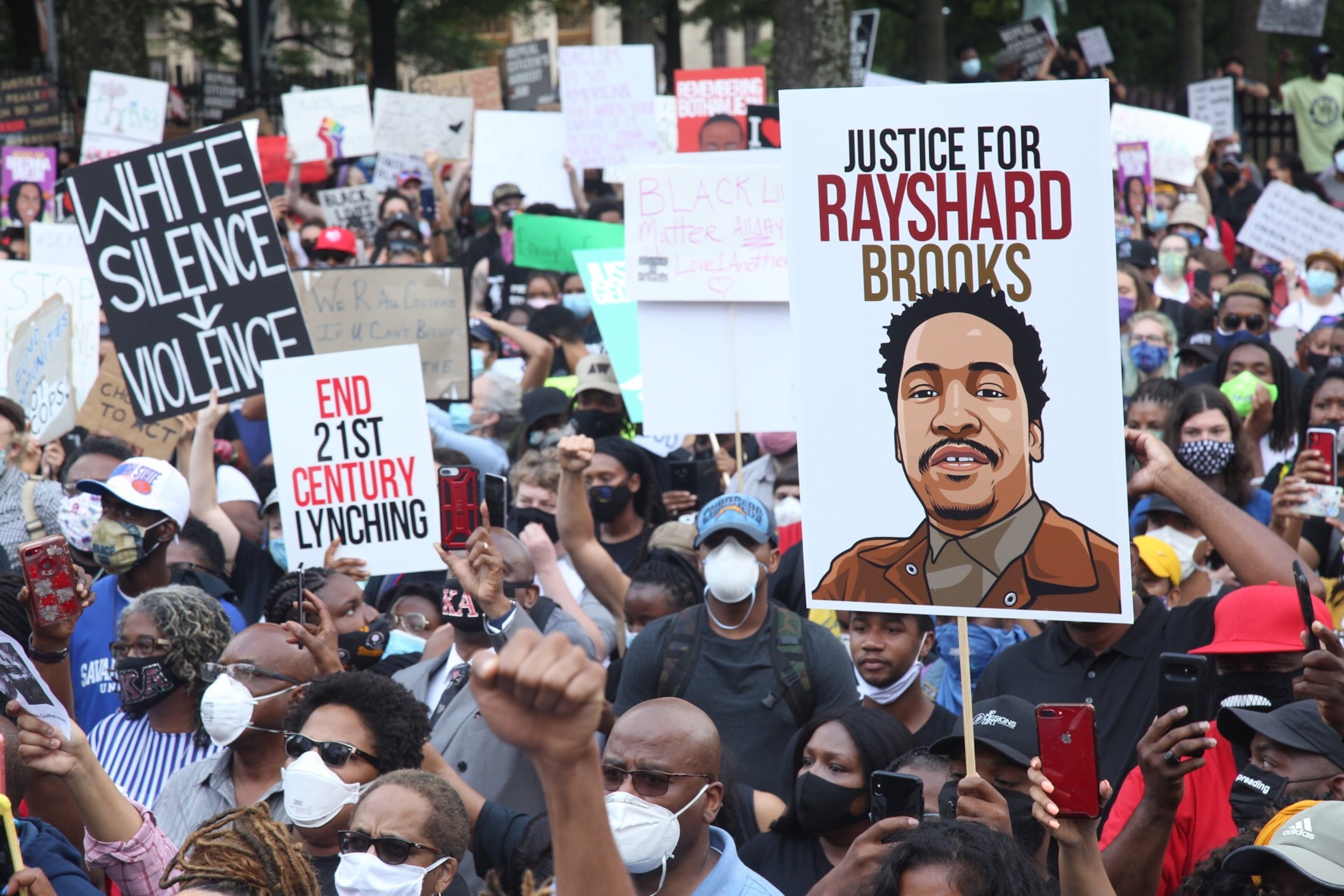
White parents having the talk with Black children is a particular challenge because they are telling a child not to trust people who look like them and trying to relay an experience they themselves have never had.
“I don’t want to say pain, but I think there is a steeper need to get to this place of awareness and activism, not only in the community and socially, but in your own home,” said Brit Eyster, who also is raising a 9-month-old adopted Black son named Cyrus in Decatur with Zach.
“My parents didn’t talk about race. Now I am having to learn how to have those conversations," said Brit, a pediatric nurse. “I have to retrain my brain.”
An estimated 3,784 adopted Black children in Georgia were living with two white parents in 2018, according to the American Community Survey.
Alduan Tartt, a clinical psychologist who counsels families and children, said his Atlanta practice has been filled with families experiencing trauma from Covid-19, the economy and the racial unrest, after kids' social media feeds were filled with tragic images of Floyd, Arbery and others.
“Black parents can explain their lived experiences. White parents can explain what they have seen,” Tartt said. “White parents have to explain that there are two Americas and tell their children they will not be treated equally for doing the same things that your white friends — or even your white brothers and sisters — do. And that is not fair and just.”
For partners Carol and Judy Veschi, both white women, it has been a constant learning experience. They have adopted six children and the four oldest, all boys, are either Black or Latino.
“As early as the first grade, you notice the subtle differences in how they were treated,” Carol said. “You learn quickly that you have to stand up for your children. But the first one or two times knock you off your feet.”
The couple’s house in Alpharetta was bustling on a recent weekday as all of the kids were inside doing schoolwork, hanging out or getting ready for work.
Steven, 19, and John, 18, were adopted as infants from Guatemala. Aaron, 14, and Mikey, 13, are Black and came out of the foster care system. As did the two youngest, Rio, 11, and Gaby, 10, both of whom are white.
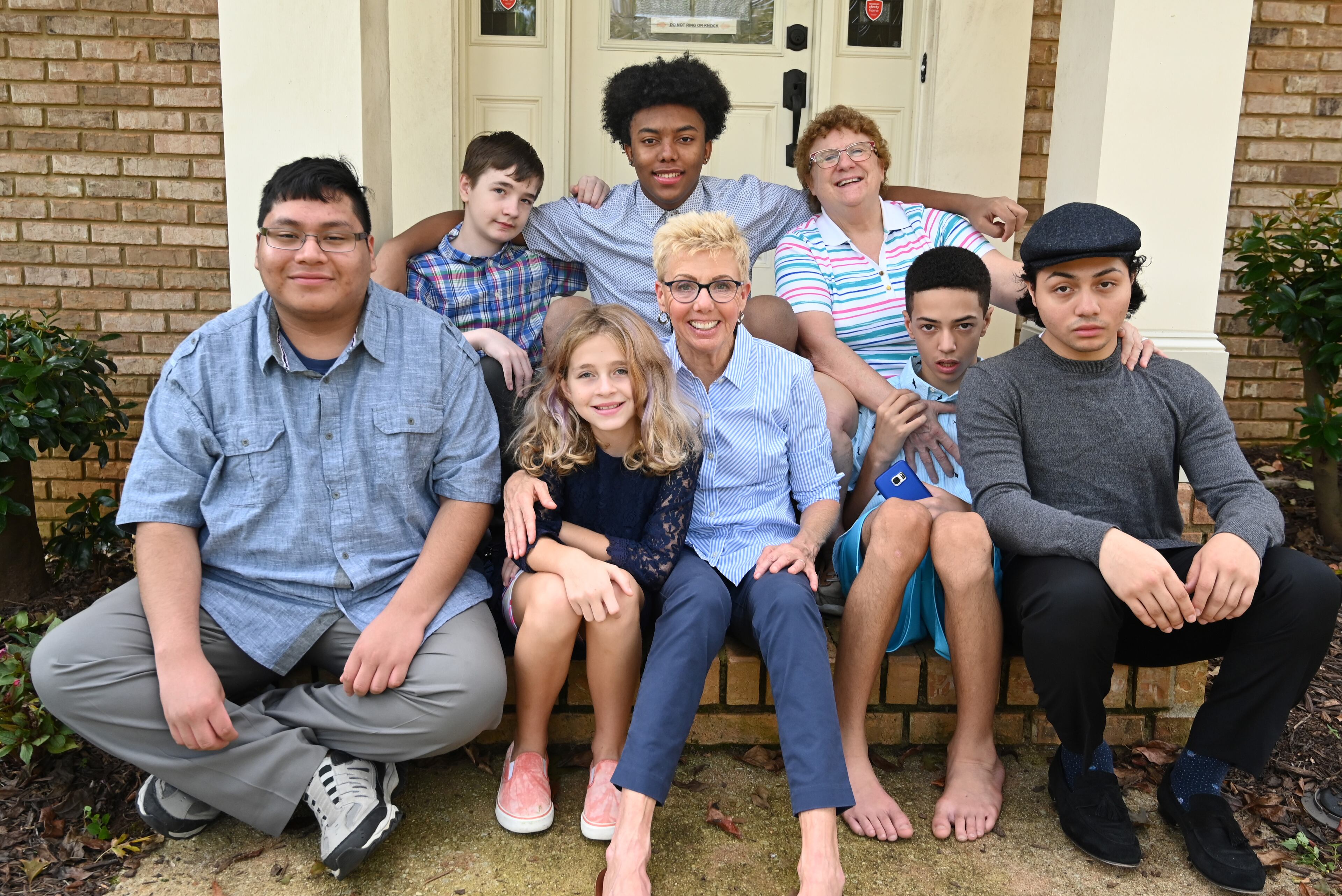
The oldest boys are in college and both have their own cars. But they all still live at home and Carol said she keeps her sons on a “short rope,” because, “I am scared to death when my children leave the house.”
Aaron, who is already 6 feet, 3 inches tall, is a good student and never in trouble. But he wonders why Gaby can wear a simple hoodie and he can’t.
“I tell him, ‘Aaron, you know why,’” Carol said. “Being raised in a white community, these are things that I never had to worry about. I think I was naive. You have no idea of how systemic racism is until you start raising a child of another race.”
Tartt said it is important for white parents to also serve as examples and advocates, explaining to their children their plans to change the world to perhaps make it “less racist," even as they impose curfews or forbid them from wearing certain types of clothes.
“Otherwise you risk your African American child having an identity problem,” Tartt said. “Their first goal is to love and protect their child. But they don’t have the luxury of being tone-deaf.”
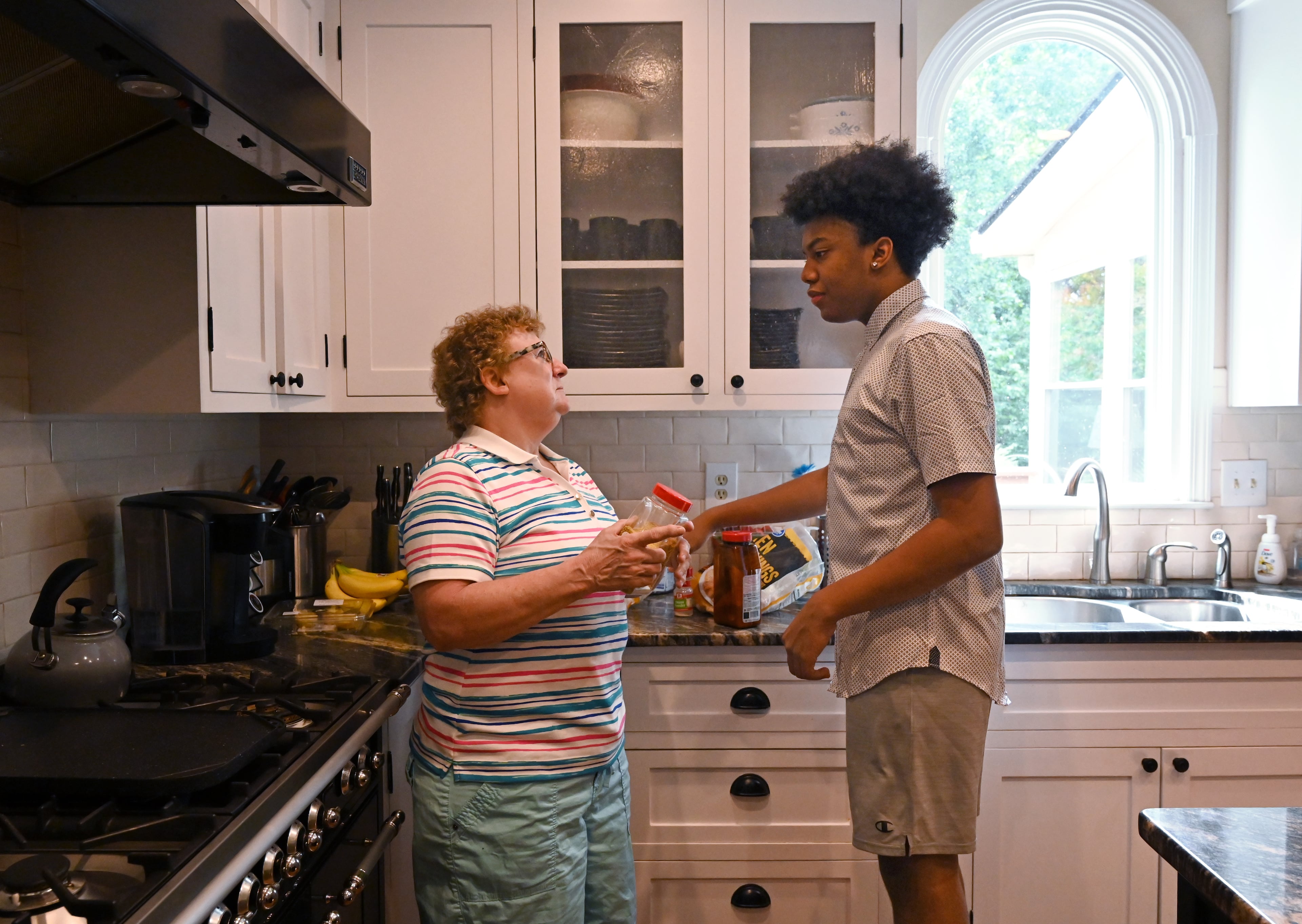
It is those innocent things that are painful for white parents who haven’t had that lived experience.
Earlier this summer, Deedra Climer’s 11-year-old grandson Michael Lewis had the idea of running around their tony Cherokee County neighborhood wearing his ninja Halloween costume.
“Nope,” said Climer, a white grandmother who is helping her daughter raise her three Black grandchildren. Michael and his two infant sisters are only a handful of children of color in the neighborhood.
“He is still 11 and doesn’t understand that he is not safe. It is too dangerous in this world,” Climer said. “He doesn’t see it yet, but for me, it is terrifying to walk around with that realization all of the time.
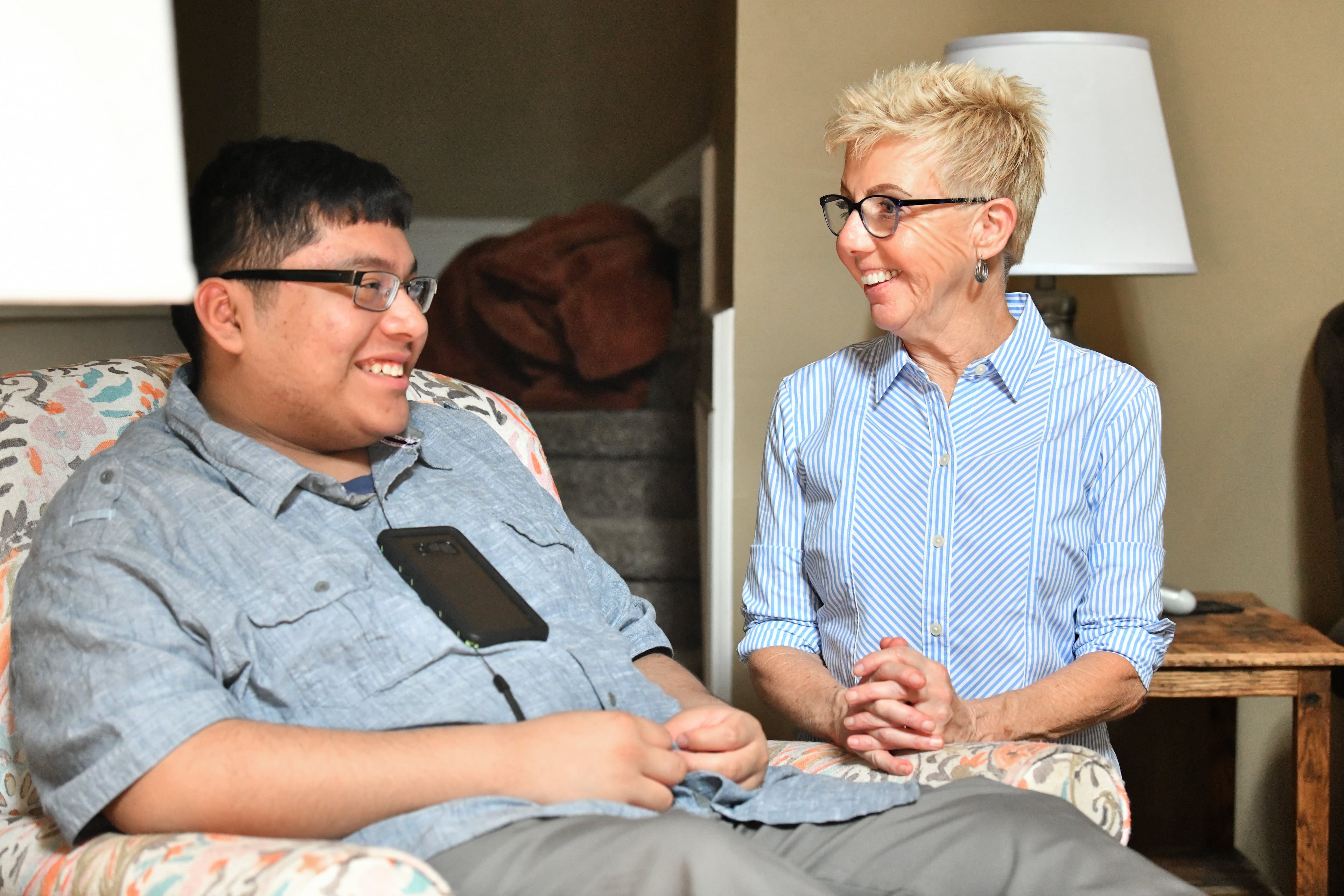
Carol Veschi flashes back four years ago, when her oldest son, Steven, who is built like a fullback, was hanging out with a group of friends. The police broke the crowd up and let the white kids walk home. Steven was driven home in a police car, she says, and “lectured about what life would be like as a criminal.”
“I told him that with his brown skin, he would always be treated differently. That was the day that he realized that he wasn’t white," Veschi said. "The hardest thing to explain is that there are people who will hate you by the color of their skin and will underestimate their intelligence or follow them around in a store. I am teaching out of fear, rather than wisdom.”
Leaning on Black voices is a common fallback for white parents of Black children.
For Zach Eyster, it is a co-worker. “I can remember going into their office all the time and saying, ‘I don’t know if you know this, it is really racist outside,’” Eyster said.
For Climer, it is Black relatives of her grandchildren, even their father who is in jail. Video calls allow him to help with homework or have deep conversations with Michael.
“Man to man, he is the one who has those conversations,” Climer said. “We talk about race and race relations constantly. I try to listen because nobody Black needs the white perspective. So, I try to do a lot more listening and supporting.”
Climer is also trying to make up for lost opportunities and learn from past mistakes. Her daughter, Kimberly, is half Black. That was never an issue, but Kimberly is deaf and Climer admits that she never fully learned sign language, which still makes it hard to communicate with her daughter.
“I bet every grandparent, in some way, tries to redeem themselves from the mistakes they made with their own children,” Climer said. “So, if you are gonna raise a Black or brown kid and don’t take it seriously enough to know their experiences are different and intentionally try to figure it out, you are not doing any favors.”
For the Eysters, it is all about exposure and messaging. Monitoring what the boys are exposed to, while not attaching anything negative to their identity. It also means not assuming that their privilege is automatically attached to their children.
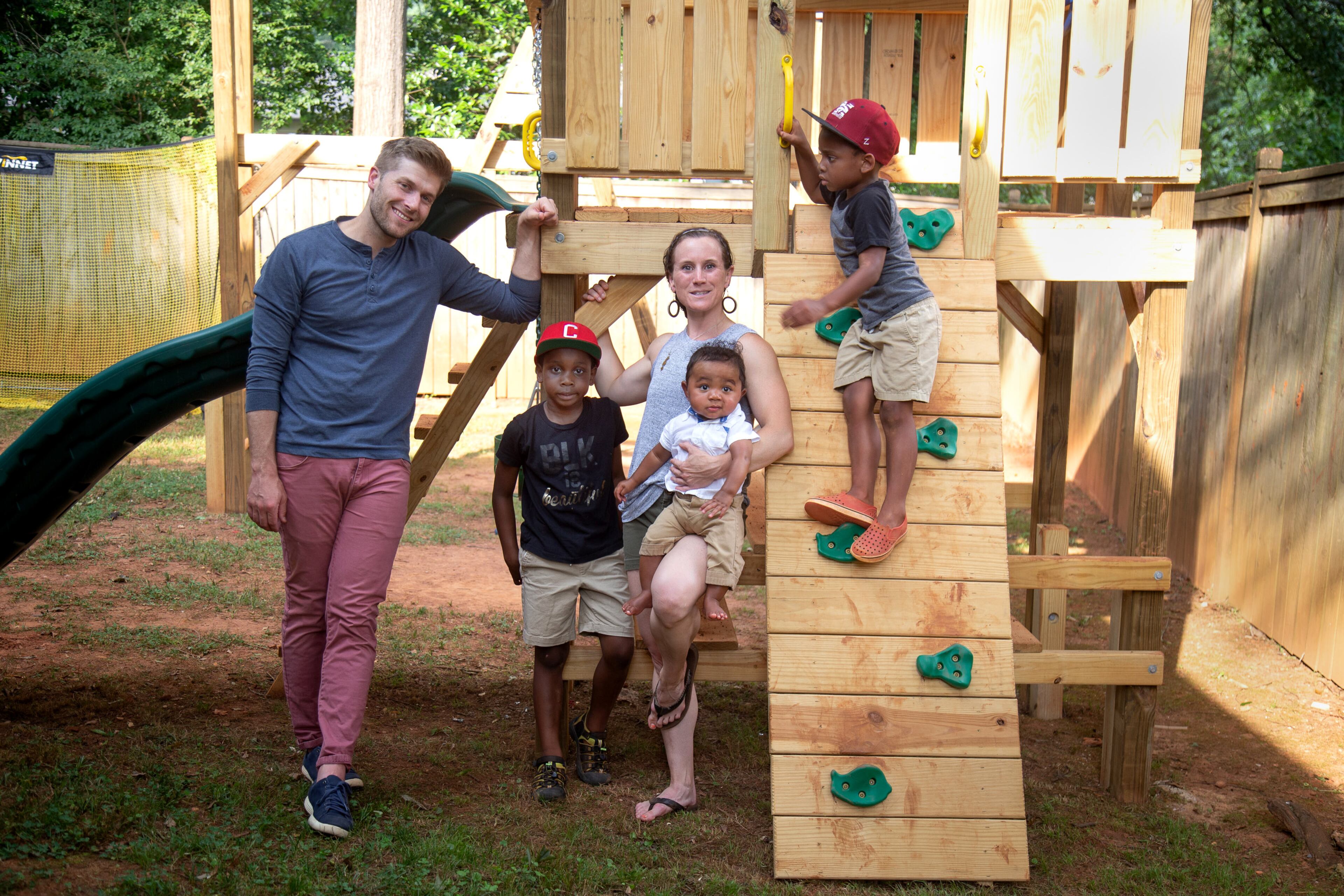
Mac, the 4-year-old, asks a lot of questions, and Brit often provides the hard, frank answers.
“I know that they are already aware of what societal, media, and external factors are presented in their headspace,” Brit said. “So it is important to interrupt that when I see things that I don’t want to be carried through into their own self-identity.”
Zach, a trademark attorney, grew up in Pennsylvania farm country just outside of Gettysburg. He said his parents never had to talk to him about dealing with police and “it would have been surprising if the cops made a wrong assumption about me.”
That is why, he said, he cries sometimes watching Clark roughhouse in the park.
“He is so sensitive and sweet that it hurts me,” he said. “My kids are genius and observant and we don’t hide the ball that they are Black and we are not. But the world is cheating itself by not getting to know who he really is.”

